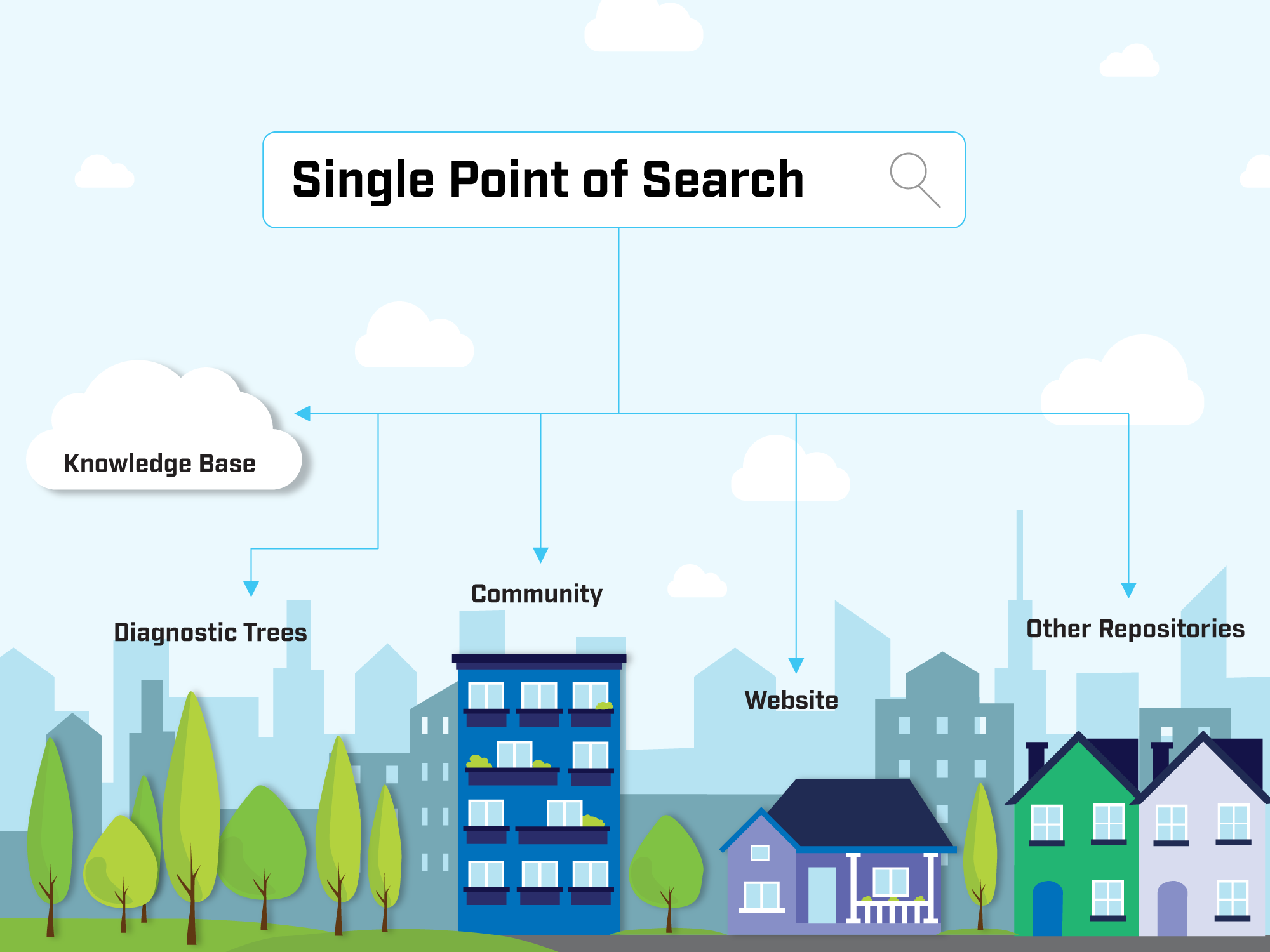There is no question that online communities are steadily growing year after year. According to Global Web Index, in the last 3 years online community users have grown at least 4% (1). Although growth is consistent, that does not mean people are hanging around. About 27% of posts go unanswered leaving a large group of users looking somewhere else for a solution (2). This is not including visitors that search for a solution and leave without clarification. To make your community the preferred place to find information, here are three things you should adjust.
1) You are Only Searching Community Content
Content limitations create restrictions for community users. Imagine a first time visitor to your community, Jane, searches “Operating System installation/ upgrade Windows 8 to 10.” Although your support site has an article related directly to her question, no community member has posted about this topic. Therefore the community pulls up posts with similar keywords, but no answer. Jane needs an immediate response and is a first time user, so she escalates to live chat on your company’s support page.
Opening the doors to your community can drastically change this end user experience. Utilizing APIs via a technology like Single Point of Search™ can easily connect your community to the support site and other repositories of information. This means that Jane’s initial search on the community will provide her with a direct solution increasing First Contact Resolution.
2) You Only use a Natural Language Processor (NLP) for Search
Most communities only use NLP for their search which can produce mediocre results for the end user. Dave, a frequent community member, searches for “bit locker not working.” Because Dave typed bit locker with a space, the NLP cannot identify any posts with BitLocker in the title. Instead, the NLP prioritizes any information it can find with the word bit in the title. The result is one that leaves Dave sifting through a long list of posts that are not related to his issue at all. When correctly typed, a solution would appear for “BitLocker not working.”
To resolve this type of interaction it is critical for community search to add conversational Artificial Intelligence (AI). NLP is one aspect of conversational AI. To provide an enhanced user experience, search should combine other aspects of AI, such as:
- Morphing: identifies variations of spelling and grammar
- Inference Engine: mimics the logical processes of induction and deduction through streamlined backward and forward chaining algorithms
- Instance Based Machine Learning: allows search results to be improved based on previous end user interactions
- Etiquette: the option to add phrase variations based on culture or trends
3) You are Duplicating Content in the Community from Other Repositories
Managing the content in your community in not always easy. Often, information is duplicated leading to lack of visibility on the community and poor SEO rankings on other sites. Since Dave could not find a solution he decided to create a new post on the community. Dave’s new thread has a lot of back and forth ultimately arriving to the same solution as in the original post. Both solutions where copied from a support article in another repository. Now there are three instances of duplicate information on your community and website causing you to lose visibility in more areas than one.
Cultivating unique posts requires preventative measures coupled with a plan of action. First, connecting your community to other repositories of information, so that existing information can be found immediately. Next improving community search by adding conversational AI, which increases the likelihood of identifying the original post. Finally, utilizing an expert system that makes identifying, examining and adjusting posts simple. So you can stay on top of duplicate content to bring visibility back to your community.
Adjusting these three things will drive people to your community and make it the preferred place to find information.
*The user experiences described above are based on actual searches through a Fortune 500 company’s community.
References
(1) “The Rise of Online Communities” Global Web Index – Chris Beer https://blog.globalwebindex.com/chart-of-the-week/online-communities/ January 7, 2020
(2) “Talk to me: foundations for successful individual-group interactions in online communities” ACM Digital Library – Jaime Arguello, Brian S. Butler, Elisabeth W Joyce, Robert E. Kraut, Kimberly S Ling, Carolyn Penstein Rosé, Xiaoqing Wang https://dl.acm.org/doi/abs/10.1145/1124772.1124916

